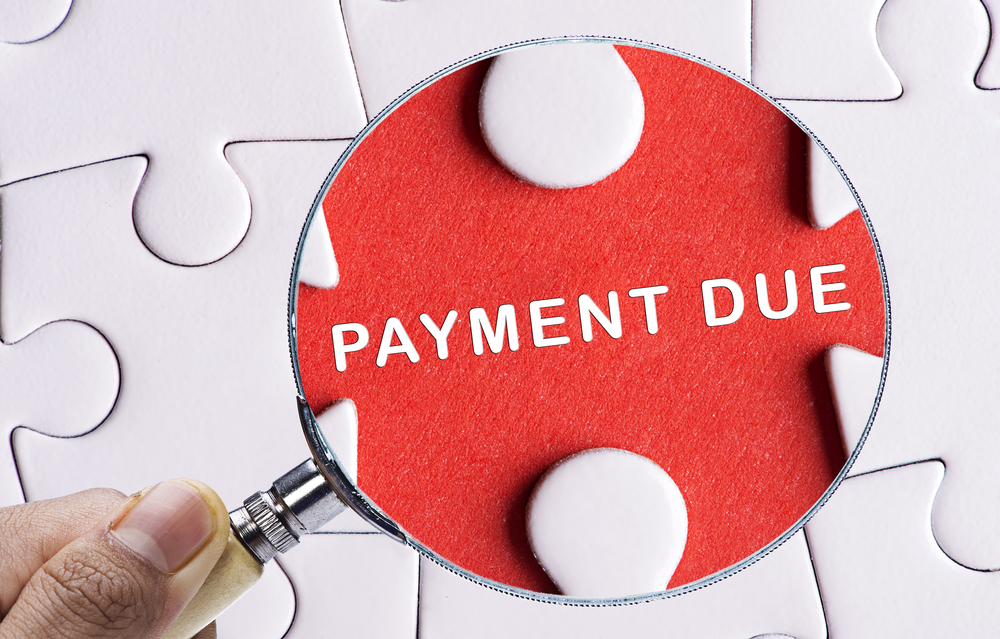5 Real Consequences of a Missed Payment
When the credit card bill rolls around each month, many people try to pay their bills on time. Most people know it is a bad idea to miss a credit card payment, but don’t recognize how a missed payment can have real consequences.
The result can depend on how late you make the payment, how much you owe on your account, and if this is a repetitive pattern. If you miss a payment, it’s wise to make up the payment within 30 days to avoid sending your account into default. Credit score dings, delinquent reports, and higher interest rates can result from a skipped payment.
1. You Might Get Charged a Late Fee
Most credit card companies send you a bill 21 days before your payment due date. However, there is a grace period between your 30-day billing cycle’s end and the payment due date.
If you pay your bill before it’s due, the company won’t charge you any interest. But you’ll be charged a late fee if you miss a payment, submit a late payment, or don’t make the minimum payment.
While credit card fees can cost anywhere from $28 to $41, the average late fee costs about $36. The first late fee is typically lower at around $28. However, if you continue to miss payments within six months of each other, you could face fees of up to $39 for each missed payment.
The best way to avoid a late fee is to pay your bill on time. If you accidentally miss a payment, contact your lender right away. Some companies will waive the first late fee as a one-time courtesy if you make up the payment on the same day.
2. It Can Show Up on Your Credit Reports
If you missed a payment over 30 days ago, your lender would typically send a notification report to the three main credit bureaus, Experian, Equifax, and TransUnion.
Most credit card companies wait one full billing cycle, or 30 days, to issue a report to credit agencies, so you may still have time to make up the payment before it goes on a negative credit report.
Keep in mind that missed payments can spiral. Even just 60 days with a skipped payment can send you into default. When you miss six consecutive payments or 180 days, the card lender will usually write off your account as delinquent. While you might feel relieved that creditors aren’t pursuing you for debt payments, the charge-off will stick to your credit report for seven years.
3. It Can Damage Your Credit Score
Many people don’t realize that missing a credit card payment can ding their credit scores. A good credit score is essential for renting an apartment, buying a house or car, or getting a loan.
Here’s how heavily a missed payment, or history of missed payments, can impact your credit score.
Your payment history comprises 35% of your FICO credit score. This means that even just one late payment can seriously impact your rating. FICO score payment factors include the number of times you have missed a payment, the dates missed payments occurred, how much you owed, and the length of time your account spent in delinquencies.
Having a history of missed payments is more damaging than having a low score from limited credit use.
There’s a small grace-period window of about 30 days after your bill due date to make up a missed payment before the report goes to the credit bureaus. The more on-time payments made will reduce the impact of missed payments as time goes on.
4. Your Interest Rate Might Rise
While late fees and hurt credit scores are some of the top consequences of missing a credit card payment, increased interest rates may also occur.
Most people aren’t aware that missing a payment can trigger a host of APR penalties.
For instance, a missed payment can hit you with higher interest rates when you make future purchases. In addition, your lender may apply a higher APR to your current credit card balance in the future. You could also lose promotional benefits such as zero intro APR. Finally, you might see your interest jump as high as 29.99%.
5. You Might Lose Your Rewards
Another unforeseen consequence of a missed payment is lost or frozen rewards.
According to FICO and Experion, Credit lenders can choose to freeze your rewards if you are past due on an account. Unfortunately, this means you won’t be able to use them until you make up any missed payments. You might even lose rewards that you haven’t redeemed if your account goes into past due status.
The Bottom Line
Missing a credit card payment can have harsh consequences. But even if you miss a payment or go into default, there’s still time to achieve your financial goals. Your credit scores can bounce back after a nosedive with time, hard work, and commitment.
Here’s what to do if you’re worried about how a missed payment can impact your financial profile. First, build back your payment reputation by making consistent on-time payments. Then, if you can’t pay off the balance or pay bigger chunks, make the minimum payment each month. Every time you make a payment on time, you not only downsize your balance, but you’ll reduce the impact on your future credit score.
Do everything possible to avoid going delinquent or having your account sent to collections since this reflects on your credit for seven years and can cause a bigger credit score ding than a missed payment. The sooner you pay missed payments and fees, reduce your debt balance, and start an on-time payment streak, the sooner you can have brighter credit scores and plan for a stable financial future.

